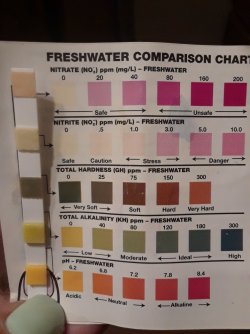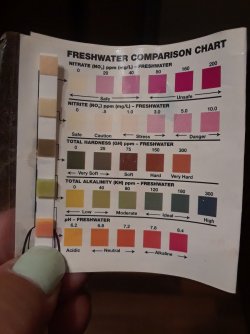Veronica Surratt
New Member
- Joined
- Sep 7, 2019
- Messages
- 18
- Reaction score
- 1
Hi everyone
I have a question on freshwater aquariums. My tap water comes from a well not city water, so no chlorine. I have had a 35 gal before and found I have problems in keeping the ph stable. Also before I didn't know about the nitrogen cycle. I've read all about the cycle now. I'm getting ready to jump from a 10gal back up to a larger tank (36). Any difference in my using of well water and getting it conditioned for my new aquarium? Thanks in advance
I have a question on freshwater aquariums. My tap water comes from a well not city water, so no chlorine. I have had a 35 gal before and found I have problems in keeping the ph stable. Also before I didn't know about the nitrogen cycle. I've read all about the cycle now. I'm getting ready to jump from a 10gal back up to a larger tank (36). Any difference in my using of well water and getting it conditioned for my new aquarium? Thanks in advance





